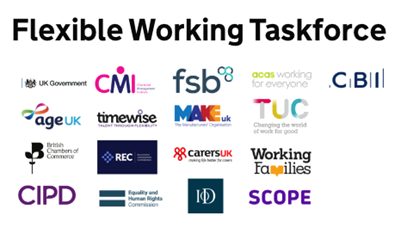From 6 April 2024, workers in England, Wales and Scotland can request flexible working arrangements from their first day on the job.
Promoted by a range of organisations within the Flexible Working Taskforce, supporters of the new regulations contend these changes will create more opportunities for people to enter into, stay in and progress in the workplace. But what could these changes mean for underemployed workers?
Underemployment and flexible working
Underemployment is a complex issue, that our research team is exploring over a three-year study. We understand underemployment as comprising three dimensions:
-
- insufficient hours of employment (or time-related underemployment)
- low wages (or wage-related underemployment)
- limited use of skills at work (or skills-related underemployment)

The latest report of our Underemployment Project draws on the experiences of thousands of workers and paints a complex picture of the scale of underemployment in the UK, and evidences how women, ethnic minorities and young people are more likely to have insufficient hours of work than are other workers.
The findings on time-related underemployment are important to unpick, as this new legislation is brought into force.
Our research is revealing that many people in the UK have insufficient working hours (or are time-related underemployed). Many workers are unable to find full-time work, want more hours in their current job, or are actively looking for a new job with more hours. Women, who make up the majority of the part-time workforce, are more likely than men to experience time-related underemployment. These findings raise questions about the availability of additional hours, the quality and timing (across the day and/or week) of those hours available, and how flexible working arrangements could improve people’s opportunities at work.
Flexible working arrangements can be especially useful for people with health conditions and those with caring responsibilities, most commonly women, to enter, remain, and progress in the workplace. However, concerns have been raised over whether the new bill goes far enough to support flexible working arrangements, given that employers can reject flexible working requests for a range of reasons. These reasons include requests causing additional costs, being unable to meet customer demand, or if work cannot be reorganised amongst other staff.
Concerns about the new regulations are echoed in findings from our interviews with underemployed workers. People are facing numerous barriers to working the hours that they want. These barriers include personal reasons such as health and caring responsibilities, however, the quality of hours on offer is also crucial.
Additional hours offered to workers can be offered at short notice, during evenings or weekends, or only available seasonally. In these cases, we find that even though people want more hours, they cannot take on more work or move into full-time positions as the extra hours available to them at work do not accommodate their personal circumstances.
The new regulations from April make the need to understand more about how employers respond to request from workers more urgent, and we need to explore how flexible working requests can support people already in or seeking to enter the workplace.
What next?
For the next stage of our research, we are looking to speak to employers, employer federations, and trade unions, to learn how organisations manage resources and demands around hours, skills, and wages. As part of our conversations, we will explore what underemployment, or labour underutilisation, means to employers, and what the implications are regarding productivity, flexibility, recruitment and retention.
If you are interested in taking part, or would like more information, please contact:
Dr Levana Magnus, University of Bristol Levana.magnus@bristol.ac.uk, or 07824 162175.

